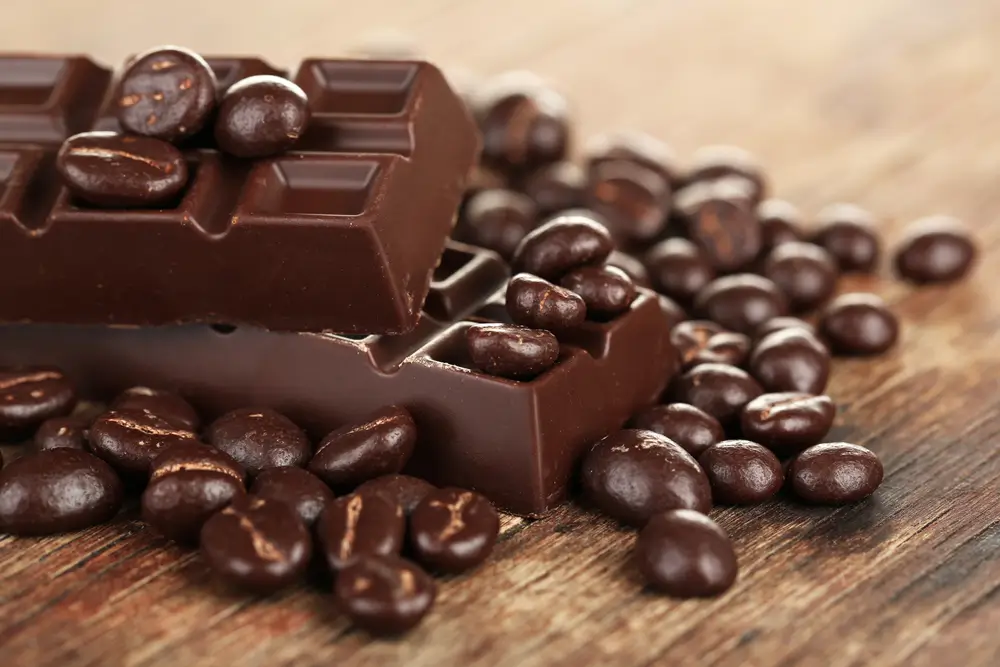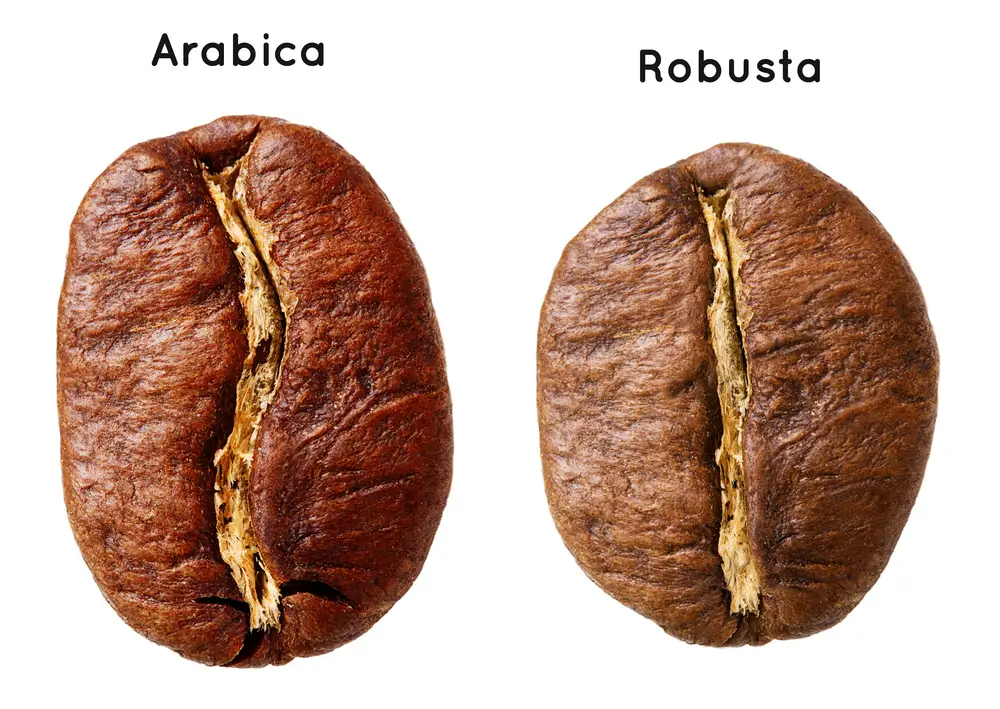Ever been in a rush, with no time to wait for that coffee to brew, or maybe you’ve got this exciting new bag of coffee beans and you’re just too eager to try them? Or, hey, maybe you’re just plain curious. Whatever’s got you thinking, if you’re pondering whether it’s okay to munch on coffee beans, you’re in the perfect spot for some answers.
Key Takeaways
- Coffee beans, both raw and roasted, are edible and offer unique health benefits.
- They are rich in antioxidants, boost metabolism, enhance brain function, and may improve athletic performance.
- Eating coffee beans can have side effects due to high caffeine content and potential digestive issues.
- Enjoy coffee beans in moderation, preferably as part of a balanced diet or as chocolate-covered treats.
So, can you eat coffee beans? Yes, you can eat coffee beans. They provide health benefits like antioxidants and metabolism boost. However, due to their high caffeine content and acidity, they should be consumed in moderation to avoid side effects like digestive discomfort and caffeine overdose.
What’s Inside a Coffee Bean?
When we think of coffee, we often focus on its caffeine content and flavor profile. However, when consumed whole, coffee beans offer a unique nutritional profile that’s worth exploring. Here’s a closer look at what these tiny yet powerful beans contain.

1. Macronutrients: A typical coffee bean consists of water, protein, and oils. The protein content in coffee beans contributes to their nutritional value, while the natural oils are responsible for much of the flavor and aroma.
2. Micronutrients: Coffee beans are a surprising source of several essential nutrients. They contain B vitamins, potassium, riboflavin, and niacin, contributing to various health benefits like improved metabolism and brain function.
3. Antioxidants: One of the most significant health aspects of coffee beans is their high antioxidant content. They are particularly rich in chlorogenic acid, a powerful antioxidant that can reduce inflammation and fight free radicals.
4. Caffeine: Unsurprisingly, coffee beans are a rich source of caffeine. While this can be beneficial for energy and mental alertness, it’s also the reason for many of the side effects associated with coffee consumption.
5. Dietary Fiber: Unlike brewed coffee, eating whole coffee beans provides dietary fiber. This can aid in digestion and offer benefits for gut health..
Can You Eat Raw Coffee Beans?
Raw coffee beans, often referred to as green beans, are the unroasted seeds from the coffee cherry. These beans are edible, though their flavor is significantly different from roasted beans. They tend to have a grassy, slightly astringent taste and are harder to chew. In terms of caffeine content, green beans contain less caffeine than their roasted counterparts. Eating raw coffee beans can offer a glimpse into the coffee’s natural flavor before it’s transformed by the roasting process. However, due to their dense and hard texture, they are not as commonly consumed in their raw form.
Can You Eat Roasted Coffee Beans?
Roasted coffee beans are commonly enjoyed as a drink, but they are also entirely edible. The roasting process brings out the rich, complex flavors we associate with coffee, making the beans more aromatic and flavorful than in their raw state. These beans are crunchier and provide a robust coffee taste along with a significant caffeine boost. Eating roasted coffee beans can give a more direct experience of the bean’s flavor profile, and it’s a way to enjoy coffee’s benefits quickly and potently. However, moderation is key due to the high caffeine content.
Health Benefits of Eating Coffee Beans
While coffee is widely recognized for its ability to perk up our mornings, eating coffee beans offers a range of health benefits, thanks to their rich nutrient and antioxidant profiles. Here’s an exploration of the potential advantages of including coffee beans in your diet:
- Rich in Antioxidants
Coffee beans are packed with powerful antioxidants, including chlorogenic acid and melanoidins. These compounds help in reducing oxidative stress and combating free radicals, potentially lowering the risk of chronic diseases like heart disease and type 2 diabetes.
- Boosts Metabolism and Weight Loss
The caffeine and other compounds in coffee beans can increase metabolism, leading to enhanced fat burning. This makes coffee beans a potential aid for weight loss and weight management.
- Enhances Brain Function
Caffeine is known for its ability to enhance brain function. It improves mood, vigilance, reaction times, and memory. Eating coffee beans may provide a more sustained release of caffeine compared to drinking coffee, offering longer-lasting cognitive benefits.
Potential Side Effects and Precautions
While eating coffee beans can offer several health benefits, it’s important to be aware of potential side effects and exercise caution. Here are some aspects to consider:
- High Caffeine Content
Coffee beans are a concentrated source of caffeine. Consuming them in large amounts can lead to caffeine overdose, resulting in symptoms like anxiety, restlessness, heart palpitations, and insomnia.
- Gastrointestinal Issues
For some individuals, consuming coffee beans can cause digestive discomfort, including acid reflux, heartburn, and upset stomach. The high acid content and presence of certain compounds in coffee beans can irritate the digestive lining.
- Tooth Enamel Erosion
Coffee beans can be hard and acidic, which might lead to tooth enamel erosion or dental issues if consumed frequently.
- Allergic Reactions
Though rare, some individuals might be allergic to coffee beans. Symptoms can include skin rashes, hives, or breathing difficulties.
Best Ways to Enjoy Coffee Beans Safely
Eating coffee beans can be a delightful experience, offering a unique way to enjoy your favorite brew. Here are some tips on how to incorporate them into your diet safely and enjoyably:

- Moderation is Key
Start with a small number of beans to see how your body reacts, especially if you’re sensitive to caffeine. A moderate amount typically means a handful of beans, equivalent to one or two cups of coffee.
- Choose High-Quality Beans
Opt for high-quality, organic coffee beans to ensure they are free from pesticides and other harmful chemicals. Specialty or artisanal coffee beans often have a richer flavor and better nutritional profile.
- Chocolate-Covered Coffee Beans
Chocolate-covered coffee beans are a delightful treat combining the rich, creamy texture of chocolate with the bold, intense flavor of roasted coffee beans. This snack offers the benefits of both chocolate and coffee, including antioxidants and a caffeine boost. The bitterness of the coffee bean pairs beautifully with the sweetness of the chocolate, creating a balanced and indulgent snack. They are popular in gourmet and specialty food markets and serve as a convenient way to enjoy a small dose of caffeine and the flavors of coffee.
- Incorporate into Recipes
You can grind coffee beans and include them in various recipes, like energy bars, desserts, or even rubs for meats. This adds a unique flavor and the benefits of coffee beans to your meals.
- Pairing with Other Foods
Pair coffee beans with nuts, dried fruits, or yogurt to balance their strong taste and make them more palatable. This also helps in moderating caffeine intake.
Stay tuned for more coffee brewing guides, recipes, and bean roasts.


